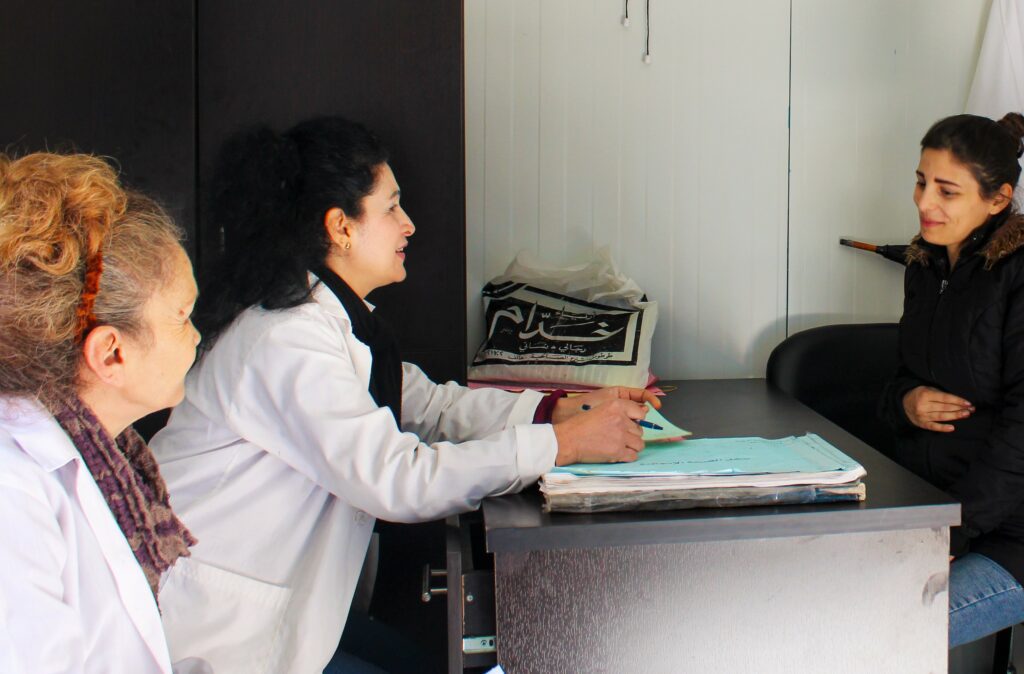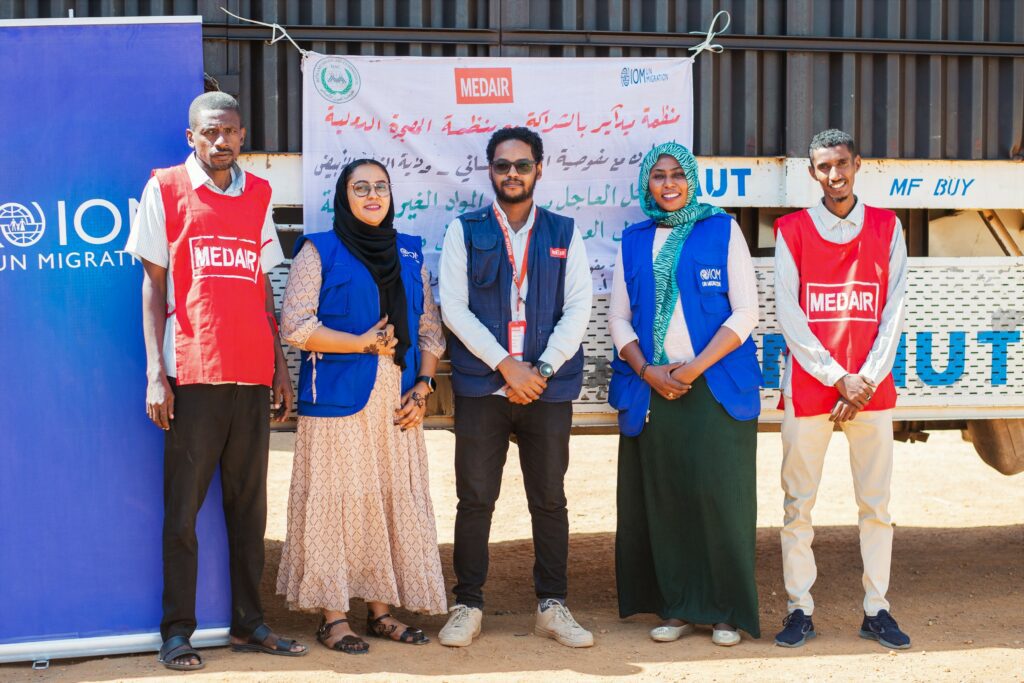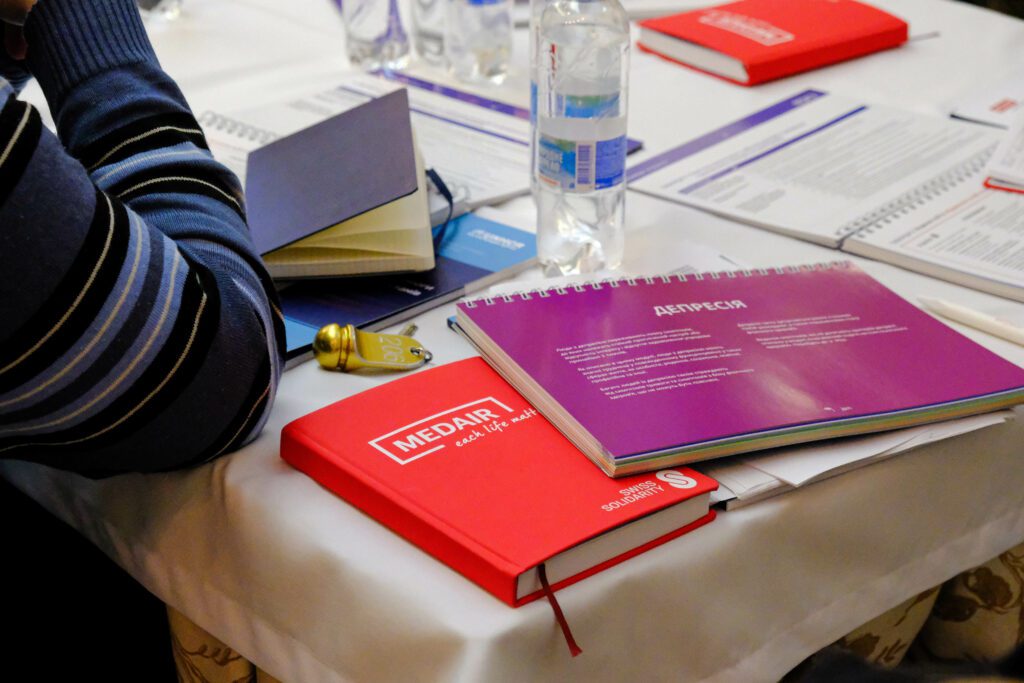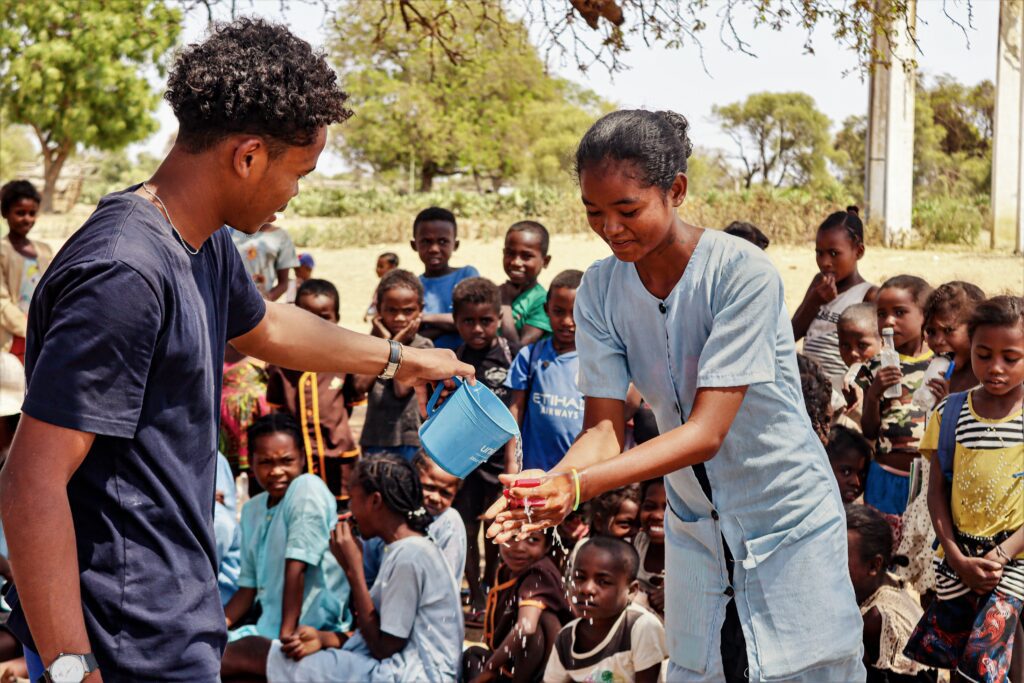10 years after the start of the Syria crisis, over 700,000 refugees remain displaced in Jordan. Families fled from Syria, leaving their homes, where generations had established lives. This creates immense economic, social, emotional, and physical challenges for families. Many feel hopeless without mental strategies to cope. Medair’s social protection program provides unconditional cash transfers to vulnerable Jordanian families and refugees. Social protection officers give mental health and psychosocial support, assisting families to develop positive coping mechanisms and life skills.
For one Syrian mother, having tools to manage mental health was essential for improving her well-being. *Zarah, a widow, is a Syrian refugee who came to Jordan in 2012 with her four children. Like most refugees in Jordan, she lived in an urban area and not in a camp. The only support she received was a food voucher. Despondent and worried about her children’s safety, health, and well-being, Zara cried every day. In 2021, Medair was referred to Zara and contacted Zara. After an conducting an assessment, Zara was enrolled in Medair’s social protection program. She received cash for five months. Paired with a social protection officer, Amneh, they worked together to set life goals, develop coping tools, and build her self-esteem.
While the cash that Zara received was invaluable, Zara longed to work, be successful, be positive, and stop crying. Zara wanted to be free from her crippling anxiety and depression. Amneh helped her to create a case plan and referred her to external services. She didn’t understand the physical and emotional impact of poor mental health on a person, refusing when referred to see a psychiatrist. However, she felt comfortable working with Amneh on techniques for deep breathing and positive thinking to control her anxiety. When her sessions with Amneh ended, she explained that her case manager felt like her support and her family. She felt changed. Zara found a job and works three days a week.
Noura came to Jordan in 2012, fleeing Syria with her family, including her young daughter. As a young Syrian refugee and a mother, receiving psychosocial support led to a major change in her life. Noura and her family enrolled in Medair’s social protection program, receiving cash assistance for five months. Amneh, Medair’s Social Protection Officer, assessed the family’s needs, working with them to set goals and develop coping mechanisms. Medair’s cash assistance allowed the family to buy food, pay utility bills, and buy medication for the father who has a medical condition.
When Amneh began working with the family and arrived at their home, Noura was very shy. Her daughter found the first two sessions with the social protection officer frightening, as she was unaccustomed to strangers. Noura lived in Jordan for almost 10 years and lacked the confidence to leave her home, go outdoors or meet other people. Amneh noticed that this affected her daughter. When they worked on goal setting, Noura’s first task was to take her daughter to the park.
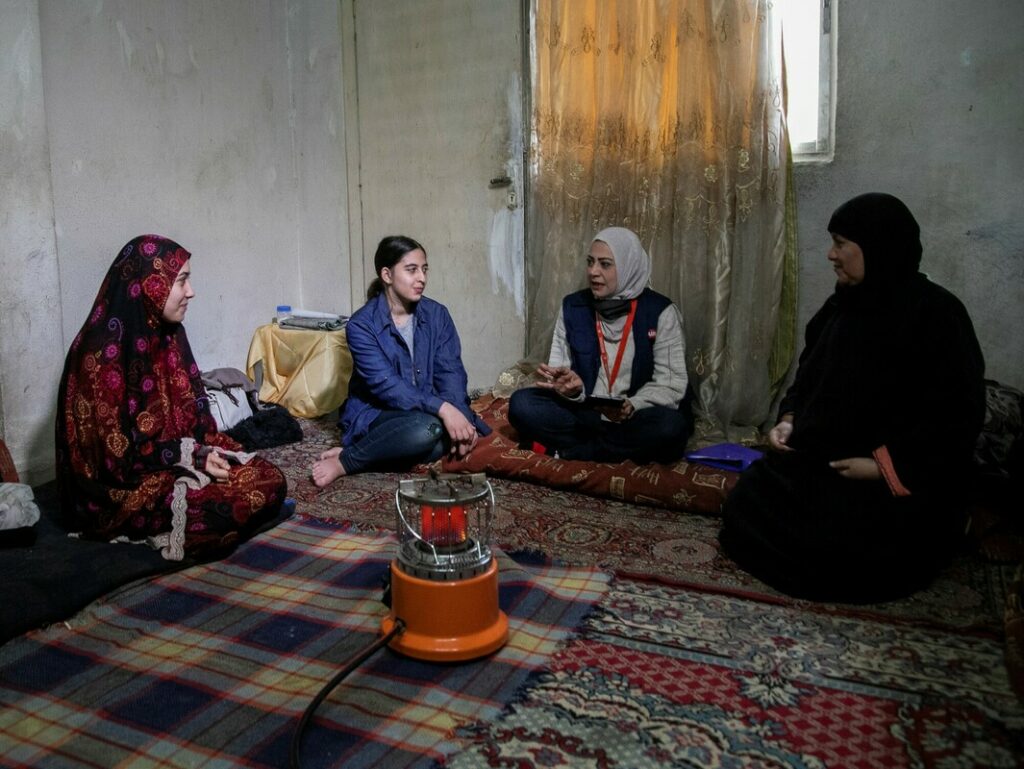
Amneh, Medair Case Manager Officer, talking to Noura (far left) and her family during an assessment visit at their home in Amman.
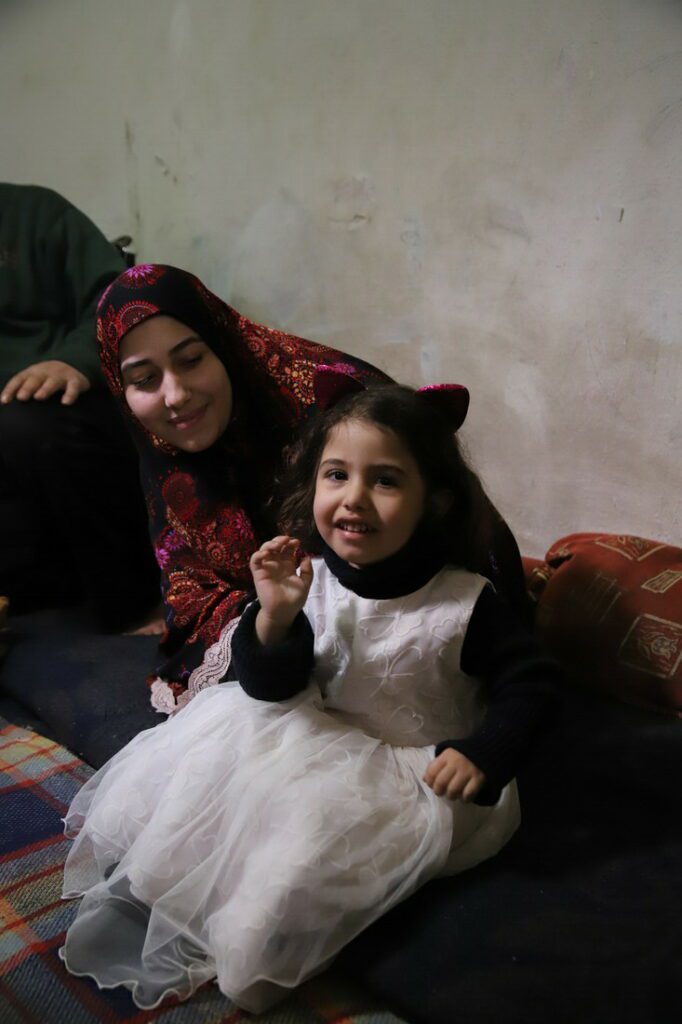
Noura and her daughter playing during an assessment visit at their home in Amman Jordan
As Amneh worked with the family, Noura began improving her skills, she started training and is determined to complete her education. She hopes her daughter will also finish her education in the future. As Amneh reflects on working with Noura, exclaiming that Noura is almost unrecognisable and exudes confidence not held previously. Amneh says, “The people we work with have a lot of problems, stress, often live in poor condition, and a lot have lost their family. They need to know how to reduce their tension. They need the skills to live.”
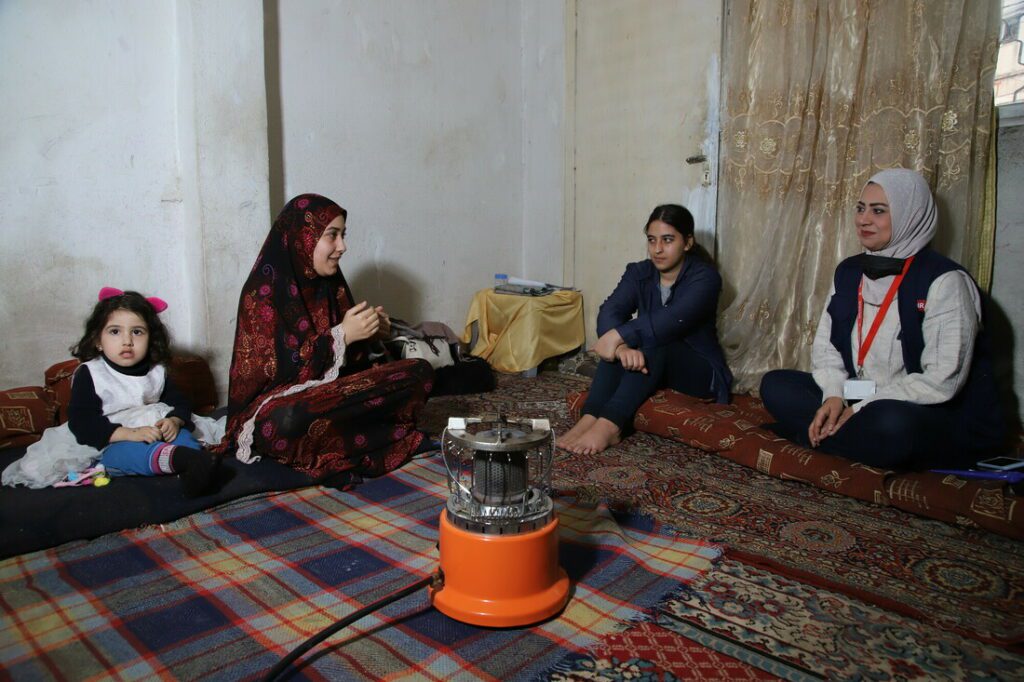
Noura explaining the activities she is involved in because she is confident after PSS sessions
Zara and Noura are a few of the many cases in Jordan where the person may not understand the emotional and psychological challenges caused by their experiences, especially as refugees or vulnerable families. These cases continually remind Medair staff of the cruelties of poverty, displacement, and conflict.
Ali Almaany, Medair’s Social Protection Project Manager, explains, “Problems are like an ice burg. They [people] don’tV see the long-term effect of the negative coping mechanisms.”
COVID-19 exacerbated existing inequities and the protracted nature of the Syria crisis has left many in limbo, uprooted from their homes with a lot of uncertainty. Medair provides complimentary services that address multi-dimensional needs. Medair’s programming in Jordan has expanded over the years, meeting growing needs with a holistic approach to health, while acknowledging an individual’s overall well-being requires more than access to health care alone.
Medair services in Jordan are funded by the German Federal Foreign Office, the Swiss Agency for Development and Cooperation, the European Commission’s Civil Protection and Humanitarian Aid Operations, the U.S. State Department’s Bureau of Population, Refugees, and Migration (PRM), and private donors.
This content was produced with resources gathered by Medair field and headquarters staff. The views expressed herein are those solely of Medair and should not be taken, to reflect the official opinion of any other organisation.


